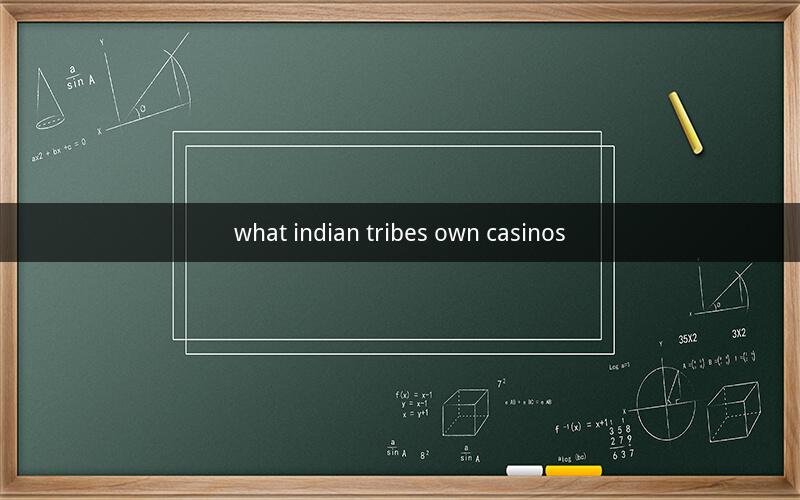
The Ownership of Casinos by Indian Tribes
Table of Contents
1. Introduction to Indian Tribes and Casinos
2. Legal Framework for Tribal Casinos
3. Economic Impact of Tribal Casinos
4. Notable Indian Tribes with Casinos
- 4.1 Navajo Nation
- 4.2 Seminole Tribe of Florida
- 4.3 Cherokee Nation
5. Challenges and Controversies
- 5.1 Regulatory Issues
- 5.2 Social and Cultural Concerns
6. Future Prospects for Tribal Casinos
1. Introduction to Indian Tribes and Casinos
Indian tribes in the United States have a rich history and culture, deeply rooted in the nation's heritage. Over the years, many tribes have sought economic opportunities to sustain their communities. One such avenue has been the establishment and ownership of casinos. These casinos not only provide economic benefits but also serve as a source of pride and cultural expression.
2. Legal Framework for Tribal Casinos
The legal framework for tribal casinos is based on the Indian Gaming Regulatory Act (IGRA) of 1988. This act allowed tribes to offer certain forms of gambling on their reservations if they agreed to a compact with the state. The IGRA was designed to provide tribes with the opportunity to develop gaming operations while also ensuring that they adhered to federal and state regulations.
3. Economic Impact of Tribal Casinos
Tribal casinos have had a significant economic impact on the United States. They have generated billions of dollars in revenue, which has been used to fund education, healthcare, and other essential services for tribal members. Moreover, these casinos have created thousands of jobs, both directly and indirectly, in tribal communities and surrounding areas.
4. Notable Indian Tribes with Casinos
4.1 Navajo Nation
The Navajo Nation is the largest tribe in the United States, and it owns and operates several casinos. Their gaming operations include hotels, restaurants, and entertainment venues, providing a comprehensive gaming experience for visitors. The Navajo casinos have been instrumental in improving the economic conditions of the Navajo Nation.
4.2 Seminole Tribe of Florida
The Seminole Tribe of Florida has been a pioneer in tribal gaming. They operate several high-end casinos, including the Seminole Hard Rock Hotel & Casino in Hollywood and the Seminole Casino Coconut Creek. The Seminole casinos have become a major tourist attraction in South Florida.
4.3 Cherokee Nation
The Cherokee Nation is another prominent tribe with a successful casino operation. Their casinos, such as the Cherokee Nation Casino and Hotel in Oklahoma and the Wind Creek Casino in Alabama, have contributed significantly to the economic growth of the tribe and the surrounding communities.
5. Challenges and Controversies
5.1 Regulatory Issues
Tribal casinos have faced regulatory challenges, including disputes over the interpretation of the IGRA and the terms of compacts with states. These issues have sometimes led to legal battles and delays in the operation of casinos.
5.2 Social and Cultural Concerns
Some critics argue that tribal casinos can lead to social and cultural problems within Indian communities. They cite concerns over gambling addiction, increased crime rates, and the erosion of traditional values. However, many tribes maintain that their casinos have helped preserve their culture and promote tribal sovereignty.
6. Future Prospects for Tribal Casinos
The future of tribal casinos looks promising, as more tribes seek to enter the gaming industry. With the right balance of economic opportunities and social responsibility, tribal casinos can continue to be a vital source of revenue for tribes and a positive influence on the broader community.
---
Questions and Answers
1. Q: How do tribal casinos benefit the Navajo Nation?
A: The Navajo Nation casinos generate significant revenue that is used to fund education, healthcare, and other essential services for tribal members.
2. Q: What is the Indian Gaming Regulatory Act (IGRA)?
A: The IGRA is a federal law that allows tribes to offer certain forms of gambling on their reservations if they agree to a compact with the state.
3. Q: What are the challenges faced by tribal casinos regarding regulation?
A: Challenges include disputes over the interpretation of the IGRA, the terms of compacts with states, and legal battles over gaming operations.
4. Q: How do tribal casinos impact the economy of a community?
A: Tribal casinos create jobs, generate revenue, and provide opportunities for economic development within tribal and surrounding communities.
5. Q: Can tribal casinos lead to social problems within Indian communities?
A: While some argue that tribal casinos can lead to issues like gambling addiction and increased crime, others believe they help preserve culture and promote tribal sovereignty.
6. Q: How have Seminole Tribe casinos contributed to tourism in Florida?
A: The Seminole casinos have become a major tourist attraction in South Florida, contributing to the state's tourism industry.
7. Q: What is the difference between tribal and state-run casinos?
A: Tribal casinos are operated by sovereign nations, while state-run casinos are regulated by state governments.
8. Q: How do tribal casinos affect the gaming landscape in the United States?
A: Tribal casinos have become a significant player in the U.S. gaming industry, competing with commercial casinos and contributing to the overall market.
9. Q: Can tribal casinos be closed down by the state?
A: The ability to close a tribal casino depends on the terms of the compact between the tribe and the state.
10. Q: What is the future of tribal casinos in the United States?
A: The future of tribal casinos looks promising, with more tribes seeking to enter the gaming industry and leveraging the economic opportunities they provide.